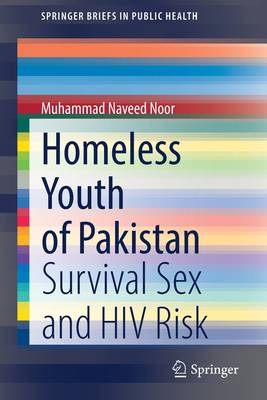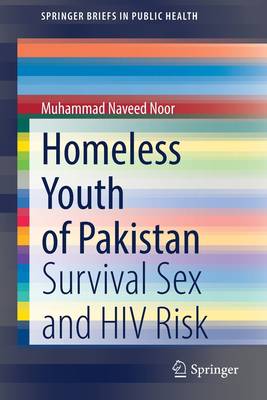
- Retrait gratuit dans votre magasin Club
- 7.000.000 titres dans notre catalogue
- Payer en toute sécurité
- Toujours un magasin près de chez vous
- Retrait gratuit dans votre magasin Club
- 7.000.0000 titres dans notre catalogue
- Payer en toute sécurité
- Toujours un magasin près de chez vous
Description
While homeless young people (HYP) are typically perceived as irresponsible and morally suspect individuals who lack essential social skills to navigate their lives, this book offers an alternative and more positive perspective. It demonstrates that HYP improvise with resources available on the streets to improve their social and financial status, although they experience significant social structural constraints.
This ground-breaking text provides an analysis of social processes that contribute to young people's homelessness, their engagement in sex work, their establishment of intimate partnerships, and sexual practices which may increase their risk of HIV and other sexually transmitted infections (STIs). The book demonstrates how the ongoing social and financial instability and insecurity neutralises HYP's knowledge of HIV/STIs, and how financial considerations, fear of violence by clients, and social obligations in intimate partnerships contribute to their sexual risk-taking. The author argues that the conventional approach of promoting health through raising awareness regarding HIV/STI prevention may continue to bring less than promising outcomes unless we focus on how structural and contextual conditions operate in the backdrop and produce conditions less conducive for young people.
Included in the coverage:
- factors that contribute to youth homelessness
- factors that shape sexual practice
- a Bourdieusian analysis of youth homelessness and sexual risk-taking
- a health promotion approach that can potentially reduce youth homelessness and their risk of HIV/STIs
Homeless Youth of Pakistan: Survival Sex and HIV Risk will attract undergraduate and postgraduate students, and researchers interested in exploring issues such as youth homelessness, sexual risk-taking, and HIV/STIs.
Spécifications
Parties prenantes
- Auteur(s) :
- Editeur:
Contenu
- Nombre de pages :
- 103
- Langue:
- Anglais
- Collection :
Caractéristiques
- EAN:
- 9783030793043
- Date de parution :
- 18-08-21
- Format:
- Livre broché
- Format numérique:
- Trade paperback (VS)
- Dimensions :
- 156 mm x 234 mm
- Poids :
- 176 g

Les avis
Nous publions uniquement les avis qui respectent les conditions requises. Consultez nos conditions pour les avis.






